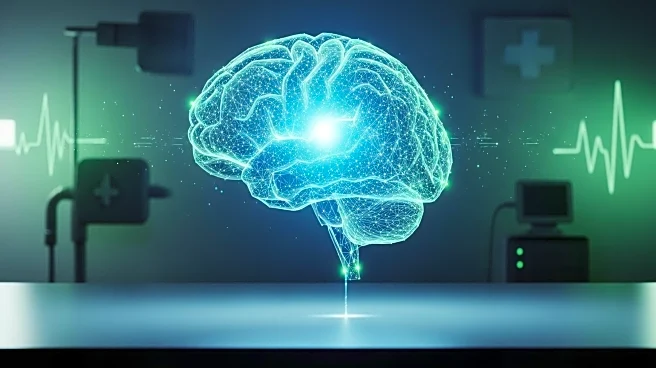What's Happening?
The field of AI for clinical decision-making is rapidly advancing, utilizing machine learning and natural language processing to support physicians in diagnostic, prognostic, and therapeutic decisions. AI systems process complex datasets, including electronic health records and medical imaging, to provide data-driven insights that reduce diagnostic errors and personalize treatment plans. Notable progress has been made in medical image analysis, where AI models now exceed human performance in detecting certain abnormalities. Predictive analytics is also maturing, with models forecasting patient deterioration and hospital readmission risks. The field is focused on developing privacy-preserving AI technologies and clinically validated systems to gain regulatory approval and build trust among healthcare providers.
Why It's Important?
AI's integration into clinical decision-making has the potential to transform healthcare by improving accuracy and efficiency in patient care. The ability to process vast amounts of data can lead to more personalized and effective treatment plans, reducing errors and improving outcomes. However, the adoption of AI in healthcare also raises concerns about data privacy and the need for regulatory compliance. Ensuring that AI systems are interpretable and clinically validated is crucial for gaining the trust of healthcare providers and patients. The advancements in this field could lead to significant improvements in healthcare delivery, but they also require careful consideration of ethical and legal implications.
Beyond the Headlines
The development of AI for clinical decision-making highlights the intersection of technology and healthcare, raising questions about the future role of AI in medicine. The focus on privacy-preserving technologies addresses concerns about patient data security, a critical issue in the digital age. The push for clinically validated AI systems underscores the importance of evidence-based practices in healthcare, ensuring that AI tools are both effective and safe. As AI continues to evolve, its impact on healthcare will depend on the ability to balance innovation with ethical and regulatory considerations.










